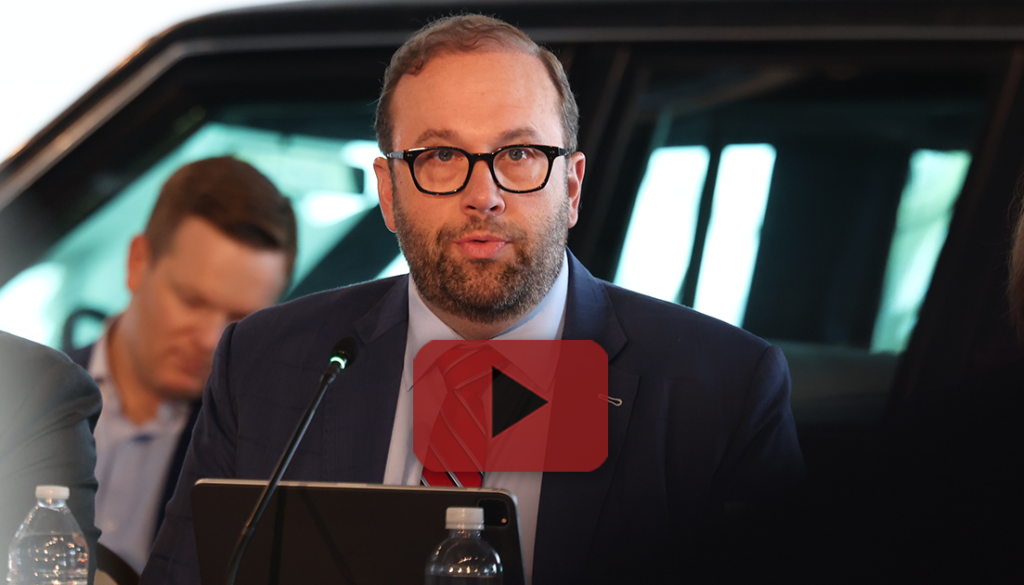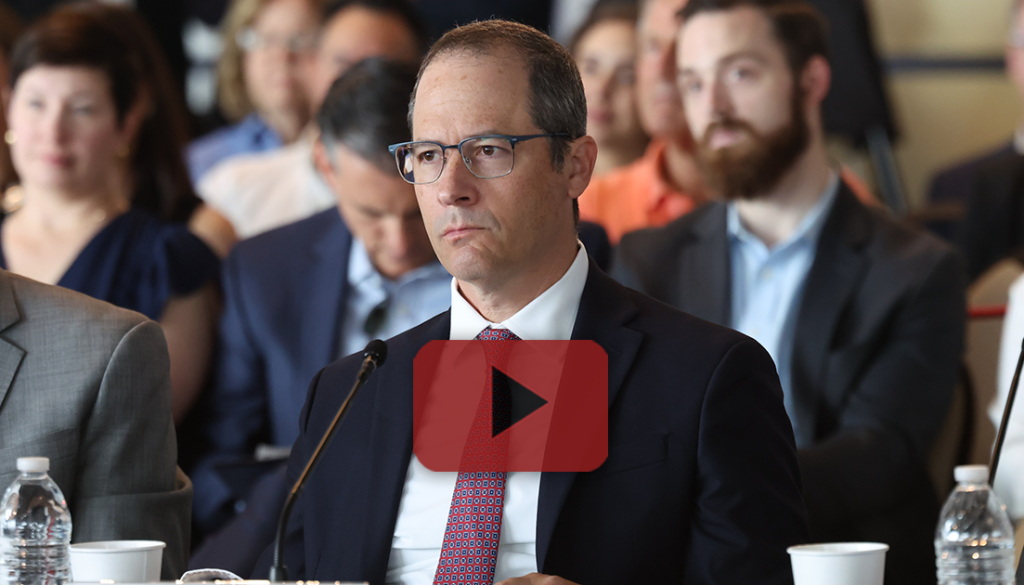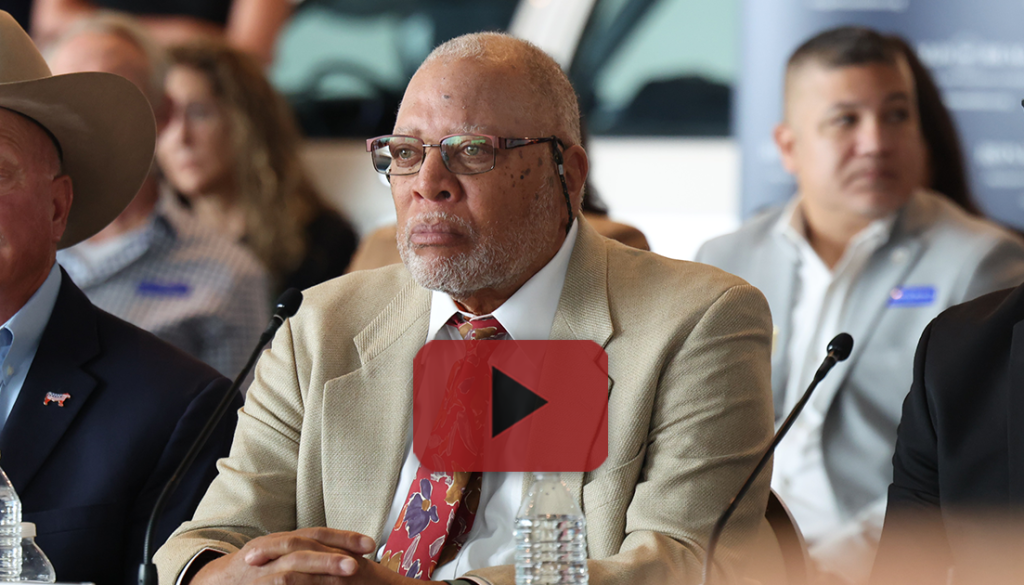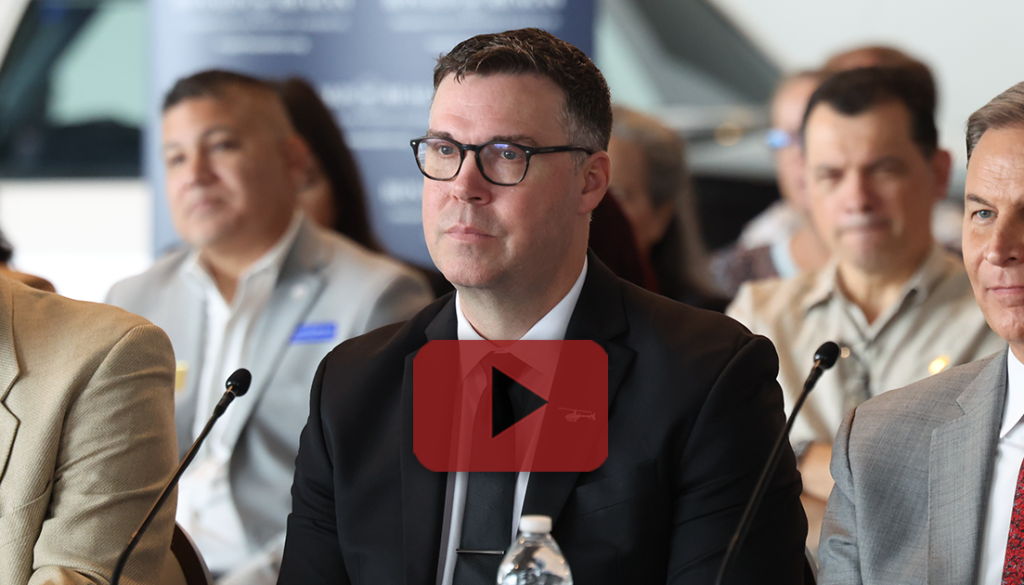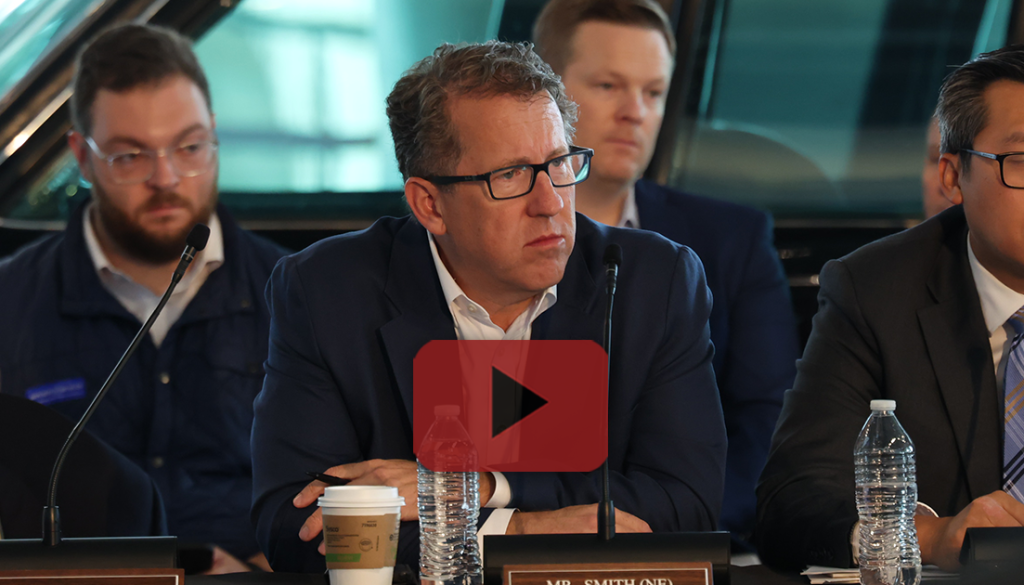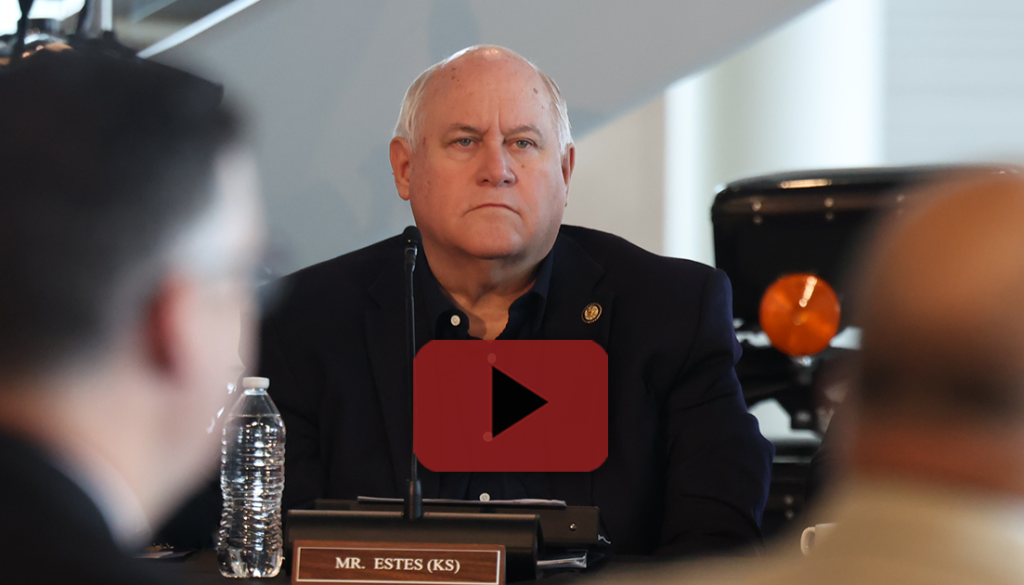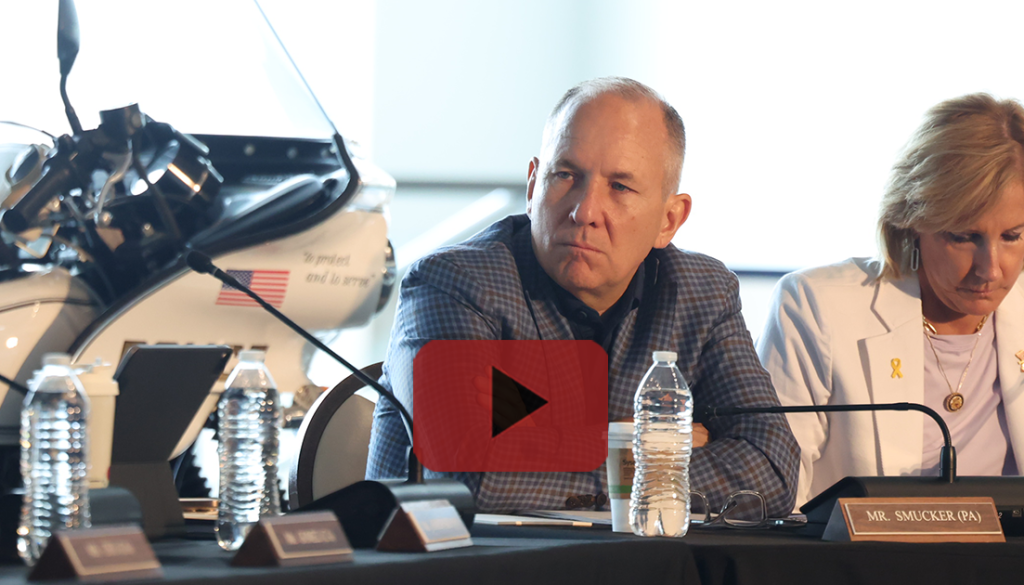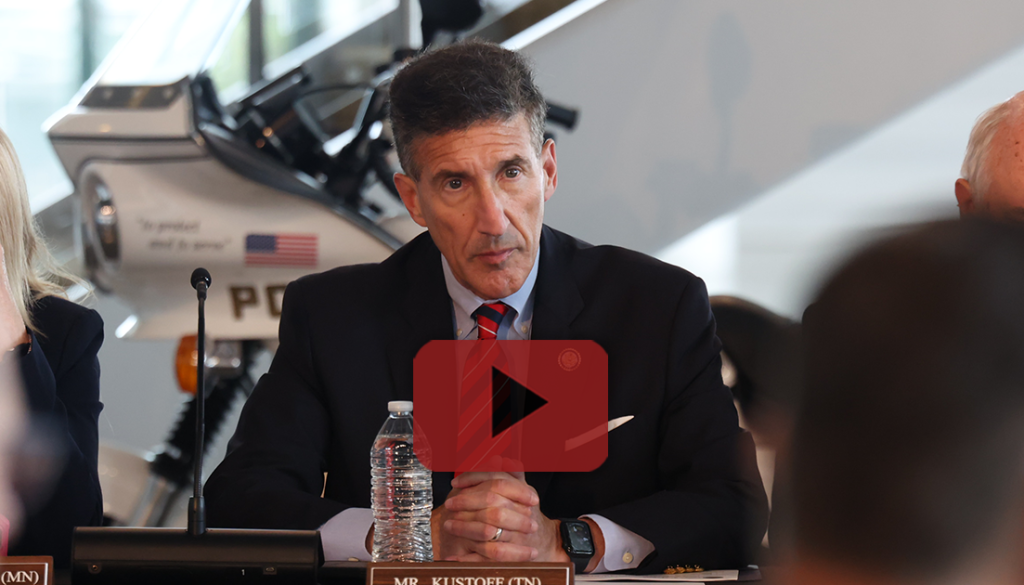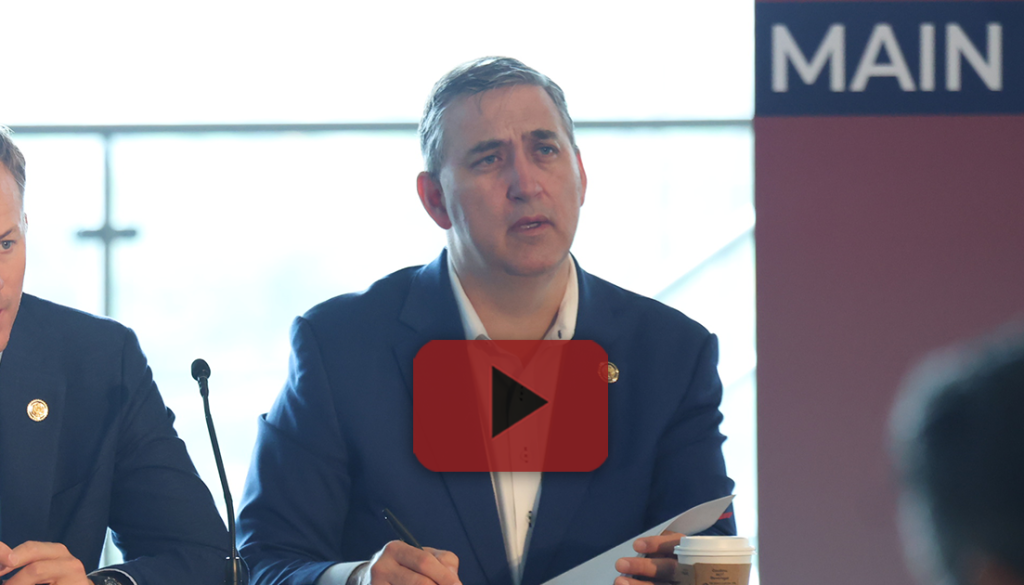SIMI VALLEY, CA – Beneath Air Force One inside the Ronald Reagan Presidential Library, the Ways and Means Committee heard from Americans about how The One, Big, Beautiful Bill is a needed shot in the arm for small businesses, manufacturers, and farmers. Witnesses shared how the permanence of the tax cuts included in the law – the 20 percent small business deduction, the doubled Death Tax exemption, immediate expensing for research and development (R&D), interest deductibility, and a return of full expensing – will help them expand their business and create good-paying jobs. Witnesses further detailed how new provisions like 100 percent expensing for factories and production facilities will further drive manufacturing growth here in the United States.
By giving businesses the certainty to pursue growth and job creation, America’s economy is set for another economic boom, similar to the boom after President Reagan’s 1981 tax cut. Proven pro-growth tax policy combined with the largest mandatory spending cut in American history will help address the nation’s poor fiscal health. Economic growth of 2.8 percent, a rate similar to growth after the 2017 Trump tax cuts and below GDP growth during the second quarter of this year, would lead to deficit reduction.
Witnesses included a California cattle rancher, convenience store owner, and helicopter manufacturer.
The One, Big, Beautiful Bill Provides Tax Certainty, Killing Democrat & Media Narrative
The One, Big, Beautiful Bill made permanent the pro-growth tax cuts American businesses use to expand their operations, hire new workers, and raise wages. Businesses can now plan years into the future, creating the runway to make major investments in American communities and workers.
Chairman Jason Smith (MO-08): “The media loves to claim that the President’s agenda creates chaos, but the truth is the exact opposite: President Trump just made pro-worker, pro-growth tax policy permanent in The One, Big, Beautiful Bill…The R&D [deduction], immediate full expensing, interest deductibility, the 20 percent small business deduction, and the Death Tax exemption – are permanent for the first time. We are unleashing new incentives to build new factories and production facilities right here in America. Manufacturers in America have never had more tax certainty than under Donald Trump. Pro-growth tax breaks will help American businesses invest and build here at home to beat our foreign competition abroad.”
The One, Big, Beautiful Bill Explodes Prosperity, Not Debt
Washington scorekeeper, the Congressional Budget Office (CBO), underestimated the amount of tax revenue the 2017 Trump tax cuts would generate by $1.5 trillion. Fast forward to today, and CBO has again made the same mistake and assumed a historically low economic growth rate for The One, Big, Beautiful Bill. A growth rate in line with the 50-year average of 2.7 percent would lead to deficit reduction, according to CBO’s own estimates. Consequently, The One, Big, Beautiful Bill has the potential to improve the nation’s fiscal health through the combination of the largest mandatory spending cuts in American history and the permanence of pro-growth tax policy from the 2017 tax cuts.
Dr. Josh Rauh, Senior Fellow, Hoover Institution: “A very plausible outcome would raise annual growth to 2.5% per year and reduce deficits by $2 trillion over the decade. That would offset more than half of the CBO’s projected cost, and that’s not even counting any tariff revenue raised by the administration. The beautiful bill is not exploding debt. It’s exploding prosperity.”
Permanent Tax Policy Helps Small Businesses Compete With Corporations
America’s nearly 30 million small businesses will permanently receive a 20 percent tax deduction, which had been set to expire at the end of this year. Small businesses also benefit from the permanence of a doubled Death Tax exemption and a trio of pro-growth tax policies – the immediate R&D expensing, interest deductibility, and full expensing. A convenience store chain owner shared how these permanent tax cuts are central to his plans to expand his current store locations and hire more employees.
Raymond Huff, convenience store chain owner: “The tax provisions in the bill are a critical part of my plan…Bonus depreciation alone will help me double the size of my most profitable store. That will allow me to add five more employees, an increase in my workforce of one-third, in addition to expanding our best performing store. The numbers now make sense for me to reopen two of my stores that I closed after the fall of the pandemic…All told, I expect to increase my employee numbers by 50 percent or more. If that’s the impact on just my business, multiply that across thousands of small businesses, and the impact on the U.S. economy is immense. Making section 199A permanent, increasing business interest deduction, together with bonus depreciation, creates a virtuous cycle for my business.
“My business and other small businesses, our businesses are not just about ourselves; they’re about the future…Because of that, I would argue that the permanence certainly matters more for small businesses than they do for larger competitors.”
Pro-Growth Tax Policy is Pro-Worker Tax Policy
After the 2017 Trump tax cuts, real wages for workers grew almost five percent and poverty fell to historic lows. Incomes for the bottom 10 percent rose 50 percent faster than those in the top 10 percent. The One, Big, Beautiful Bill makes permanent the pro-growth tax cuts that boosted incomes and wealth for middle-class Americans, in addition to new targeted tax relief delivered for American workers: no tax on tips, no tax on overtime, and no tax on Social Security. A California manufacturer detailed how permanence of pro-growth tax policies benefit his employees.
Rep. Nathaniel Moran (TX-01): “You mentioned that some of the benefits of the tax cuts that we have today to Robinson Helicopter will help the business itself as a benefit to the business. But who are some of the intended beneficiaries down the chain? Who are the real beneficiaries of the breaks that you guys are going to get?”
William Fulton, California helicopter manufacturer: “First of all, it’s really our workers. Our workers are the ones that get this benefit, and we have a number of overtime workers. Our number of overtime workers will directly benefit from no tax on overtime. In addition to that new policy, we’re better equipped to invest in that workforce. And in addition to that, our suppliers, as I mentioned before, will have more predictability. When they have more predictability, they grow as well. So we see this not just with our core products, but with our workforce, our manufacturing facilities, and our strong American-based supply chain.”
Permanent Death Tax Exemption Means Certainty for Family Farms
Family farms and other small businesses will permanently benefit from a doubled Death Tax exemption that is further increased and grows with inflation thanks to The One, Big, Beautiful Bill. Two million family farms and ranches, including that of a hearing witness, will no longer have to worry about what constantly changing tax policy from Washington means for the longevity of the family farm.
Rep. Adrian Smith (NE-03): “The Death Tax. Many would say it’s a double tax. I would love to get rid of it entirely and permanently, but that’s not where we ended up. We did end up with an exemption, and it is permanent. Can you speak to the usefulness of that permanence in terms of agricultural operations and other small businesses as well?”
Kevin Kester, California cattle rancher: “For the estate tax, which we also fondly refer to as the Death Tax, my family over the last 30 years have spent tens and tens of thousands of dollars trying to plan legal expenses, plan for mitigating the different rates and exemption amounts over the years. Now with the permanency of having a baseline indexed-up, we can plan and wisely try to transition for our generational family ranching operation. I can’t overstate how big that is to have that certainty and knowing what the limits are going to be, and at the same time, hopefully we can have the discussion about full exemption in the future. It is hugely important to my family and many other ag operations, family-run businesses to have that permanency and certainty of what the numbers are so they can properly plan for future generations.”
R&D Expensing Is A Win for American Manufacturers Competing With China
American manufacturers have been at a disadvantage from unfair Chinese state subsidies, including a 200 percent “super” deduction for R&D. Had Congress not passed The One, Big, Beautiful Bill, American manufacturers would have continued to only been able to deduct 20 percent of R&D costs each year. Now, the immediate deductibility for R&D expenses in The One, Big, Beautiful Bill will strengthen American manufacturers, stop the R&D recession underway in America, and spur new innovations and increased productivity in our economic competition with China.
Rep. Ron Estes (KS-04): “Mr. Timmons, you’ve highlighted how critical innovation is to our manufacturers, especially given that they are responsible for 53 percent of all private-sector R&D, even though they just make up 10 percent of GDP. Can you speak on what kind of impact that has on the workforce?”
Jay Timmons, National Association of Manufacturers:“Innovation is one of the great competitive advantages that we have here in the United States. When that provision expired a few years ago, we saw a reduction in investments in research and development. Why is that important? China has a 200 percent research and development tax credit for the investments made in that area…We have some very serious concerns about being able to compete with China. China simply doesn’t view the world the same way we do, so I was very pleased through your work and others on the committee we were able to get that credit renewed.”
Economic Golden Age Is Just Getting Started
After the 2017 Trump tax cuts, real income for Americans increased at the fastest pace in two decades, the direct opposite of the three percent decline in real wages under President Biden. Already, real wages are increasing again under President Trump, even before the full economic growth from The One, Big, Beautiful Bill takes effect.
Rep. Lloyd Smucker (PA-11): “The real score is going to be what happens, the outcome of this bill. I’m confident that this will drive the prosperity…You can just look as recent even as the Trump years, compared to the Biden years, where real income grew $6,000 per family for my constituents. Do you know that in June of this year was the first month in years where we’ve again had real income growth. This is just after the beginning of the Trump policies. Folks, we’re only getting started, and I’m excited about what’s going to happen.”
With President Trump’s Fourth of July Deadline to Pass Tax Relief, the Manufacturing Boom Can Start Sooner Rather than Later
The 2017 Trump tax cuts were set to expire at the end of 2025, raising taxes on millions of small businesses, manufacturers, and farmers. The result would have been millions of lost jobs, including 1 million manufacturing jobs alone. The President’s Fourth of July deadline to sign the law helped businesses, like manufacturers, make major investments sooner. The head of the National Association of Manufacturers pointed out The One, Big, Beautiful Bill becoming law midway through the year allows businesses to start building new factories and hiring new employees as soon as next year, instead of later.
Rep. David Kustoff (TN-08): “Talk about the importance of certainty that the passage of The One, Big, Beautiful Bill before the end of December 31, 2025 – the fact that we did it in July versus waiting until the end of the year; the fact that it may have expired in toto. For some of your member companies or some of the manufacturers, what would that have meant if these provisions would have expired at the end of December 2025?”
Jay Timmons, National Association of Manufacturers: “One of the conversations that I know the chairman and I had many times was about the importance of businesses – and specifically manufacturers who make major capital investments – their ability to plan into the future. The conversation that I had with the chairman was: I’m very happy that this bill did pass in July, because had it happened later in the year, we probably wouldn’t have even had the ability to plan for 2026. It would have pushed those strategies out to 2027.”
Tax Cuts Put Money Directly Back Into Small Business Growth and Job Creation
After the 2017 Trump tax cuts, investment in America grew 20 percent and 5 million new jobs were created from the torrent of business growth sparked by tax reform. The One, Big, Beautiful Bill builds on that successful recipe for economic growth, first by making the 2017 tax cuts permanent and then introducing new tax relief for small businesses, manufacturers, and farmers.
Rep. Nathaniel Moran (TX-01): “When your business keeps more of its hard-earned money in the form of profits, what are you able to do with those extra profits?”
Raymond Huff, convenience store chain owner: “Typically our extra profits are reinvested in the business. We grow the business. We hire more employees. We buy more coolers, product. We keep the economy going.”

